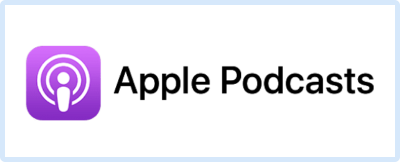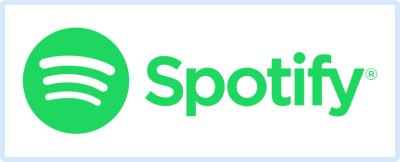Welcome to Curriculum Encounters!
Listen to Episode
Show Notes
In this introduction to Curriculum Encounters, hosts Jackie Simmons and Sarah Gerth van den Berg invite you to embark on a provocative journey through the world of experiential learning. As curriculum design experts at Columbia University’s Teachers College, Jackie and Sarah have reimagined the Black Paint Curriculum Lab, bringing it back in an exciting new format that promises to challenge conventional thinking about curriculum.
Season One explores aesthetics and academic spaces, memory and hidden spaces, sensory inquiry and social spaces. Join them as they explore the concept of learning inside and beyond classroom walls.
Whether you’re an educator, a student, or simply someone curious about the nature of knowledge, this podcast is designed for you. Jackie and Sarah will pose thought-provoking questions about what we know, how we come to know it, and the implications for teaching and learning in today’s dynamic world.
Tune in to discover how to cultivate a richer, more inclusive learning environment and to rethink the spaces where education can thrive. Don’t miss out—follow the show and be part of the conversation that explores knowledge, wherever you find it!
The views expressed in this episode are solely those of the speaker to whom they are attributed. They do not necessarily reflect the views of the faculty, administration, staff or Trustees either of Teachers College or of Columbia University.
Episode Transcript
Jacqueline Simmons:
Welcome to Curriculum Encounters, a podcast about exploring knowledge wherever you find it and thinking about what kind of knowledge matters for teaching and designing curriculum.
Sarah Gerth van den Berg:
What is a curriculum encounter?
Jacqueline Simmons:
What's a curriculum encounter? It's ...
Sarah Gerth van den Berg:
A sound?
Jacqueline Simmons:
Yeah. It could be a walk.
Sarah Gerth van den Berg:
A surprise?
Jacqueline Simmons:
It opens. It opens. My name is Jackie Simmons, and I'm a senior lecturer in the Department of Curriculum and Teaching at Columbia University's Teachers College. I've been teaching courses in curriculum design for the past 14 years, and I also work as an independent consultant to help schools, nonprofit education organizations, and some for-profit spaces design curriculum to guide teaching and learning in a wide range of fields.
Sarah Gerth van den Berg:
I am Sarah Gerth van den Berg. I design curriculum particularly around the arts, our senses, and place. I am a visiting scholar at the Digital Futures Institute at Columbia University's Teachers College, where I completed my doctoral work in curriculum studies. I also lead faculty and curriculum development at a seminary in New York and consult on curriculum projects in out-of-school spaces. And when we say we design curriculum, most people immediately think of schools, and they ask, "Oh, for what grade or what subject?"
Jacqueline Simmons:
Right. What do you wish people's first assumption was instead, Sarah?
Sarah Gerth van den Berg:
Well, when we design curriculum and think about it as the selection and organization of knowledge for people of all ages who might encounter knowledge in all sorts of places, it might happen in schools in a particular grade or subject, but maybe it's in museums.
Jacqueline Simmons:
Right, or other public spaces like parks or even city sidewalks.
Sarah Gerth van den Berg:
And popular culture and media. Studying curriculum helps us think about how we encounter knowledge in the world so we can design more creative ways of learning.
Jacqueline Simmons:
In this podcast, we're going to ask you to consider those intangible forms of knowledge that are often avoided or ignored in conversations about education.
Sarah Gerth van den Berg:
For example, the kind of knowledge that makes you pay attention to the spaces you are in and ask, why is it designed this way? How does the design of this space ask my body to be or to move, and what does that open up or close in terms of how I am thinking?
Jacqueline Simmons:
Or the kind of knowledge that taps into a memory or an emotion and reminds you to think pedagogically about what questions and prompts are needed to connect learning to human experience. So, we see the work we do as relevant for just about anyone who's ever wondered where ideas come from, what we choose to pay attention to when we talk about teaching and learning.
Sarah Gerth van den Berg:
And what we don't.
Jacqueline Simmons:
Right. And therefore what we choose to teach and why.
Sarah Gerth van den Berg:
And that brings us to how we came to this podcast.
Jacqueline Simmons:
Yeah. We've been running a creative space called the Black Paint Curriculum Lab where we spend a lot of time in conversation with teachers, college students, alumni, and other faculty who are all really interested in exploring the unexpected places where knowledge occurs.
Sarah Gerth van den Berg:
At Lab we go on walks, we move our bodies, listen to sounds, and play with materials as prompts for exploring what we know and how we know it.
Jacqueline Simmons:
And we realized that a podcast could open up these conversations and activities to others who might want to join us, and that's where you come in.
Sarah Gerth van den Berg:
We hope that listening will encourage teachers and anyone interested in curriculum to pay attention to deep questions about how we understand the world, and therefore, what we do in education.
Jacqueline Simmons:
We hope you'll join us. Give us a listen and be sure to subscribe so you don't miss an encounter. Curriculum Encounters is a production of the Digital Futures Institute at Teachers College, Columbia University. It was edited by Jen Lee and the both of us.
Sarah Gerth van den Berg:
Our theme music is designed by Noah Teachey. Listen to episodes of this podcast on our website or wherever you get your podcasts. And if you have comments, email us at curriculumencounters@tc.edu.


